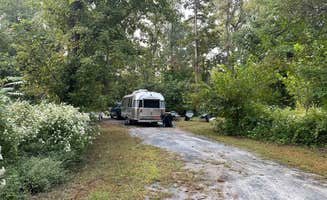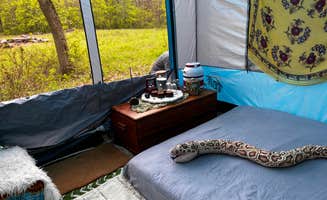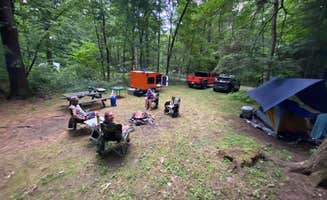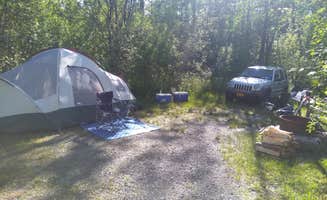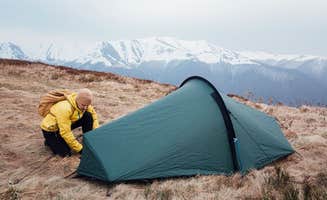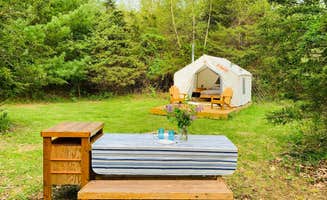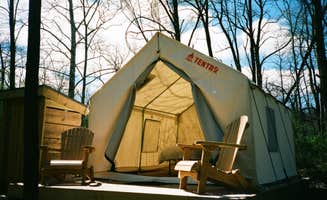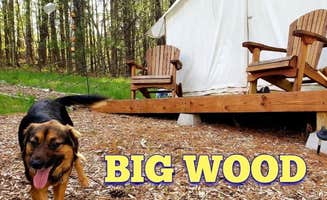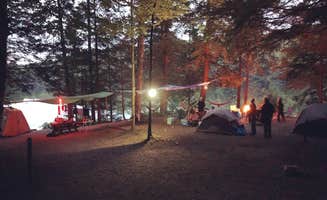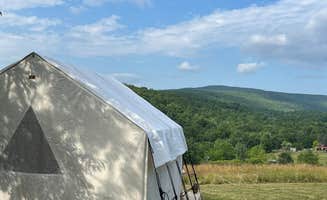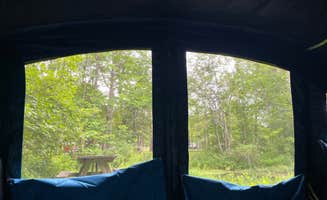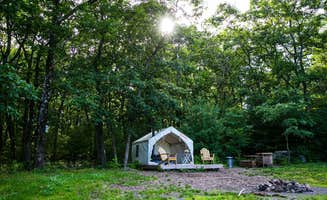Selkirk camping areas sit at elevations ranging from 200 to 600 feet in the Hudson Valley, with a humid continental climate bringing warm summers averaging 82°F and cold winters. The camping season typically runs from late April through October, with most campgrounds closing after Indigenous Peoples' Day weekend due to freezing overnight temperatures that arrive by mid-fall.
What to do
Boat on the Hudson River: At Schodack Island State Park Campground, visitors can launch boats directly from the dedicated ramp area. "The day use and boat ramp on the Hudson River" provides excellent access, though one camper warns that "the boat ramp dock turns into a death trap when a big wake from a boat hits the river bank!" Multiple fishing spots along the shoreline accommodate anglers without watercraft.
Birdwatching opportunities: The diverse habitats around Selkirk support robust bird populations. One visitor at Schodack Island noted "excellent birding" opportunities and "hiking out to a couple of different blinds to look for birds." They reported seeing "a juv eagle" during their visit. Trails through wetland areas provide the best viewing conditions during morning hours when birds are most active.
Hiking network: North-South Lake Campground connects to the Catskill Escarpment trail system, offering routes ranging from flat lakeside paths to challenging mountain climbs. A camper describes it as having "great hiking nearby" that is "also relatively easy and includes the newly opened viewing platform for Kaasterskill falls, which is minutes down the road from the campground."
What campers like
Clean bathroom facilities: Multiple campgrounds maintain excellent restroom standards. At Dingman's Family Campground, "facilities were exceptionally clean and the camp store was stunning!" Similarly, a visitor to Cherry Plain State Park Campground appreciated "hot showers, bathrooms, and dishwashing stations" that were all available and well-maintained.
Wildlife viewing: The region hosts diverse animal populations. One camper at Schodack Island observed "lots of bunnies, weasels, chipmunks, birds, and butterflies" with "plenty of space to walk the dog." Another noted seeing "many rabbits, birds, and occasionally bald eagles" during their stay, making wildlife spotting a common experience rather than a rare occurrence.
Private, spacious sites: Many campgrounds feature natural barriers between sites. A camper at Schodack Island found their "site was SO spacious and felt secluded because of all the nature and greenery." At Cherry Plain, visitors recommended "the sites toward the back of the park" which are "all lovely" and more secluded than those near the road.
What you should know
Terrain challenges: Several campgrounds have significant elevation changes. At Spacious Skies Woodland Hills, one camper noted their "site was steep grade from steps to picnic table. Flat ground area for camper was very narrow. Tricky footing for older folks." Similarly, another visitor mentioned "terrain is uneven. Hit and miss on how flat or level sites are."
Seasonal campgrounds: Most facilities close for winter. At Thompson's Lake Campground, the operating season runs from "April 29 to October 10," while Cherry Plain State Park Campground operates from "May 23 to Labor Day." Booking ahead is essential during peak summer months when weekend sites fill quickly, especially at popular parks near water.
Rabies documentation requirements: Some parks enforce strict pet policies. One Schodack Island visitor warned, "Be sure to bring your dogs rabies records!! They don't let you in with just the tag, it has to be the paper records...they are very strict on rabies requirements." Most campgrounds require leashes no longer than 6 feet for pets.
Tips for camping with families
Playground access: Whip O Will Campsites offers multiple recreation options for children. One visitor noted it "had a little arcade, a nice lake, and playground," making it ideal for families with varied interests. Several campgrounds have recently upgraded their play equipment and recreation areas to meet safety standards.
Swimming options: Several parks have designated swimming areas with beach access. One visitor to Whip O Will observed kids "swimming in the designated area and sitting/playing on the nice beach." Thompson's Lake Campground features lakeside sites where families can easily move between camping and water activities throughout the day.
Educational programming: Rangers at several parks conduct nature programs during summer months. A visitor to Schodack Island appreciated that "they have excellent services and activities. Kudos to the Rangers!" These programs typically run weekends from Memorial Day through Labor Day and cover topics from local wildlife to stargazing.
Tips from RVers
Electrical limitations: While many campgrounds offer hookups, specifics vary widely. A visitor at Schodack Island noted "RV sites offer 30/50 amp electricity" but added there are only "water fill ups in the campground" rather than at individual sites. Another camper mentioned "dump station on the way out" for handling waste tanks before departure.
Road conditions: Access roads to some campgrounds present challenges for larger vehicles. The road into Schodack Island was described as "definitely patched and bumpy, but once you're in the loop things are smooth!" RVers should check campground websites or call ahead about maximum vehicle lengths, as several parks have limitations under 35 feet.
Cell service variability: Work-from-RV campers should note connectivity differs between parks. At Schodack Island, "ATT and Verizon fluctuate between 1-3 bars. It was enough for me to work - downloading files, sending emails, and conducting non-video zoom calls. At night we were able to stream with just a little buffering." Cherry Plain has "no cell service or internet" according to visitors who needed to drive to town for connectivity.


